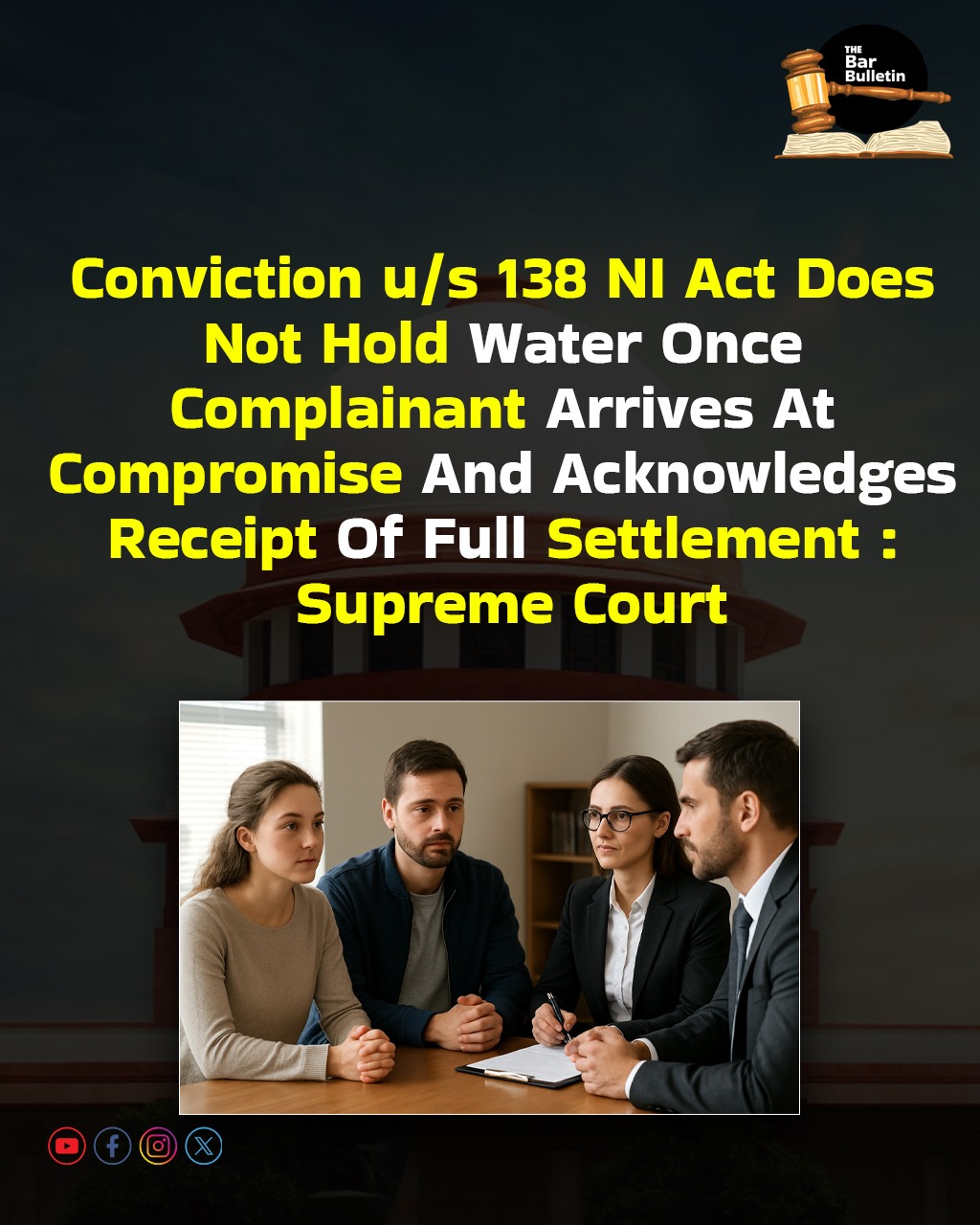Finding that the Respondent in consideration of two demand drafts along with three cheques has arrived at a compromise with the Appellant without any coercion and at his own will and voluntarily, the Supreme Court has recently ruled that once a complainant signs a compromise deed acknowledging receipt of the full settlement amount, the conviction under Section 138 of the Negotiable Instruments Act (NI Act) cannot hold water, and therefore, the concurrent conviction has to be set aside.
The Division Bench comprising Justice Aravind Kumar and Justice Sandeep Mehta observed that although dishonour of a cheque entails criminal consequences, the legislature, by virtue of section 147 of the NI Act, has made it compoundable notwithstanding the provisions of the Code of Criminal Procedure, 1973, and the same can be compounded at any stage of the proceedings especially when the parties have themselves arrived at a voluntary compromise.
Reference was made to the decision in the case of P. Mohanraj & Ors. vs M/s. Shah Brothers Ispat Pvt Ltd. [(2021) 6 SCC 258], wherein the offence under section 138 NI Act was referred to as a “Civil Sheep” in “Criminal Wolf’s Clothing” which meant issues agitated by the parties under the said provision are of private nature which are brought within the sweep of criminality jurisdiction in order to strengthen the credibility of the negotiable instruments. Reference was also made to the decision in the case of Gimpex Private Limited v. Manoj Goel [(2021) SCC OnLine SC 925], where it was held that “Once parties voluntarily entered into such an agreement and agree to abide by the consequence of non-compliance of the settlement agreement, they cannot be allowed to reverse the effects of the agreement by pursuing both the original complaint and the subsequent complaint arising from such non-compliance.”
Briefly, in this case, the respondent had filed a complaint under the NI Act against the appellant, alleging that he had borrowed a sum of Rs. 5 lacs and, for repayment of the said debt, had issued a cheque, which, on presentation, was returned with an endorsement “funds insufficient”. After the trial, the appellant was convicted and sentenced to undergo simple imprisonment. This conviction was confirmed by the ADJ as well as the High Court. Later, the parties arrived at a compromise, whereunder the first respondent (complainant) indicated his no objection to the appellant filing an application for altering the order and to seek acquittal, which was dismissed by the High Court on the ground of non-maintainability.
Appearances:
AOR Naresh Kumar, along with Advocates Aftab Ali Khan & Arna Das, for the Appellants
AOR Jay Kishor Singh, and Advocate Dr. Rishi Pal Singh Garttan, for the Respondents

